Intro
As a veterinarian, I understand the deep bond between pet owners and their senior dogs. One common concern that often arises is senior dog panting, especially at night. This behavior can be alarming and concerning for pet parents, but rest assured, there are reasons behind it. In this blog post, we will delve into the possible causes of senior dog panting, offer insights, instructions, and remedies for managing this issue, and provide tips for soothing your elderly canine companion.
Understanding Why Senior Dog’s Pant at Night
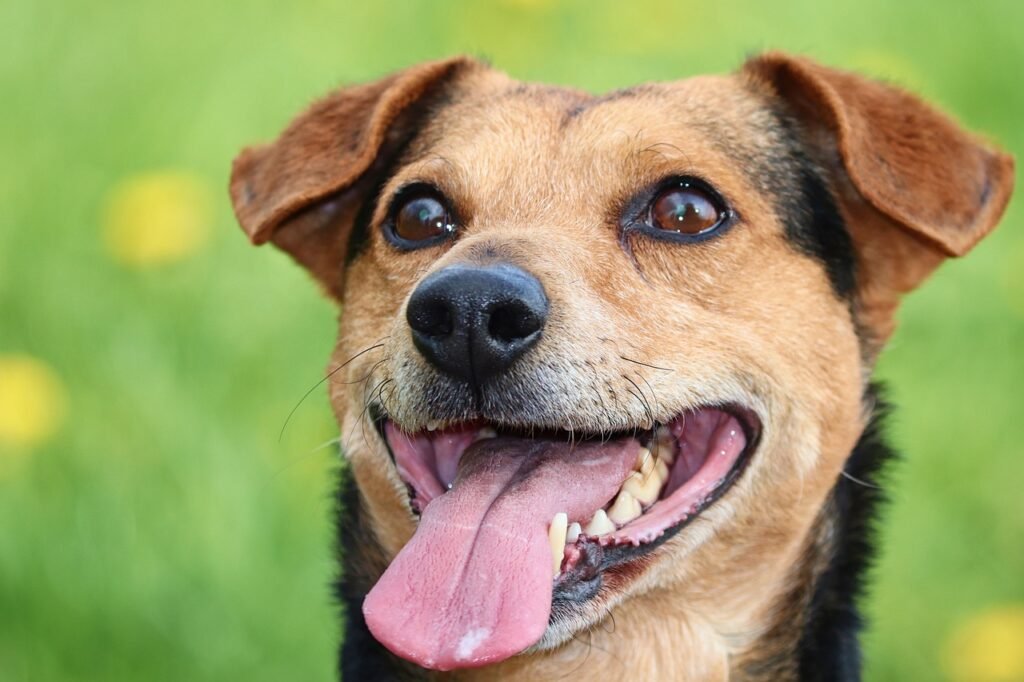
When our canine companions enter their senior years, their bodies often tell a story of a life well-lived, but also one that may now come with its share of discomforts that can disrupt their rest, particularly at night. Panting, a mechanism our furry friends use to regulate their body temperature, can increase during the twilight hours for reasons ranging from the physiological to the psychological. As they age, dogs might experience a decrease in the efficiency of their cardiovascular and respiratory systems, making it harder for them to maintain comfortable body temperatures, especially during sleep.
Exploring further, we find that discomfort from conditions such as arthritis, dental disease, or even the anxiety that comes with sensory decline, can make nights restless and lead to increased panting. It’s not just about the physical changes, however. The night can bring about feelings of vulnerability in your senior pet, amplifying any stress or anxiety they may already feel, which manifests as panting. Recognizing these signs early on is crucial in providing the appropriate care and comfort they need during their golden years.
Moreover, it’s important to consider the environment in which your senior dog sleeps. Overheating can be a simple yet overlooked cause of nighttime panting. Ensuring they have a cool, comfortable spot away from direct heat sources can make a significant difference in their sleep quality and reduce unnecessary panting.
In essence, nighttime panting in senior dogs can be multifaceted, rooted in both physical discomfort and emotional stress. Acknowledging these potential causes is the first step towards creating a serene nighttime routine that supports your senior dog’s health and well-being.
Common Health Issues Leading to Excessive Panting
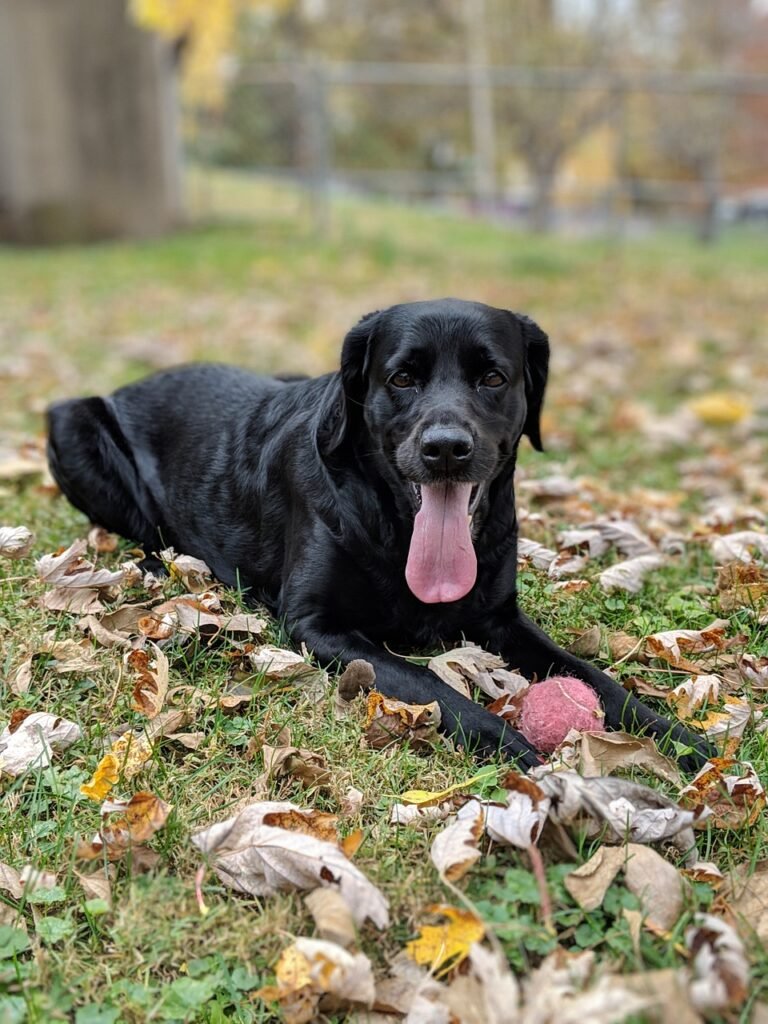
A myriad of health conditions can lead to your senior dog panting more than what would be considered normal, especially during the quieter, nocturnal hours. Heart disease stands out as a prominent cause, as it can significantly impact your dog’s ability to circulate oxygen efficiently, leading to increased effort in breathing and consequently, panting. Lung disorders, such as chronic bronchitis or even lung tumors, are also concerning contributors that compromise a dog’s respiratory efficiency.
Delving deeper into other potential causes, arthritis and other painful conditions can cause discomfort that exacerbates panting. Pain, unfortunately, is a silent stressor in senior dogs, and nighttime can often amplify their discomfort due to the lack of distractions that daylight brings. Additionally, hormonal imbalances such as those seen in conditions like Cushing’s disease or hypothyroidism can disrupt your dog’s metabolic rate and lead to excessive panting as part of their symptomatology.
Respiratory infections should not be overlooked as they directly affect the airways, making breathing laborious and leading to increased panting. It is essential to observe if the panting is accompanied by coughing or wheezing, as these could be indicative of an infection that requires immediate attention.
Each of these conditions necessitates a thorough veterinary evaluation to pinpoint the exact cause and tailor a treatment plan. The approach may include medication, lifestyle adjustments, or even surgery, depending on the diagnosis. Early detection and intervention are key in managing these health issues effectively, ensuring your senior dog maintains the highest quality of life possible.
The Role of Anxiety and Stress in Nighttime Panting
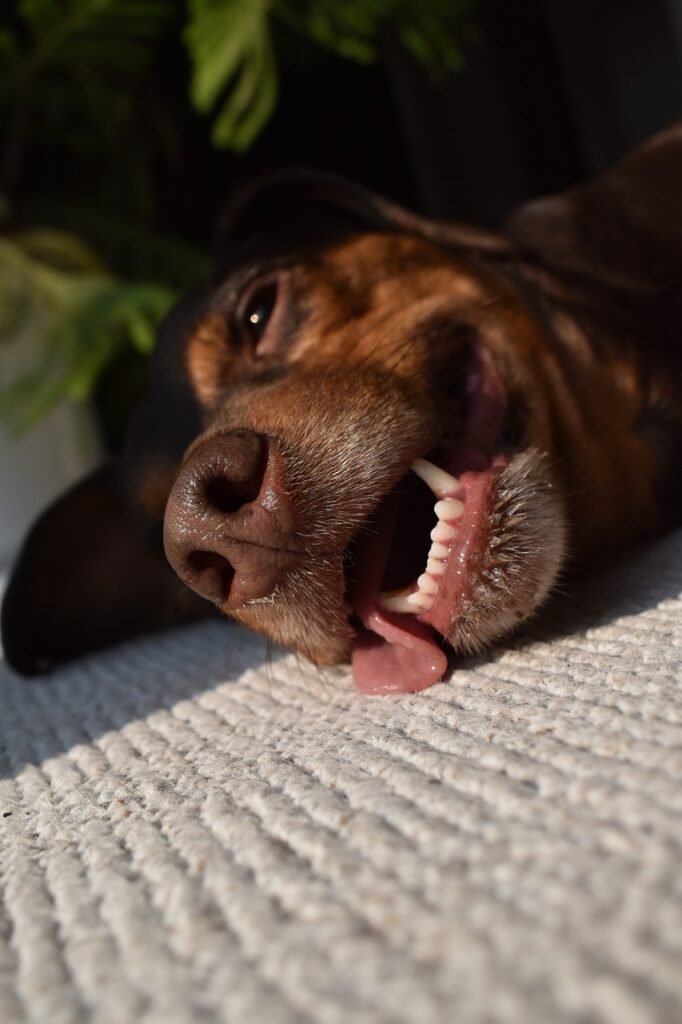
Navigating the complexities of a senior dog’s mental health reveals that anxiety and stress significantly impact their nighttime behaviors, including panting. In older dogs, diminished cognitive function and sensory impairments can foster an environment of confusion and fear, particularly when darkness falls. These feelings of disorientation can significantly elevate stress levels, manifesting physically as excessive panting. It’s crucial to recognize these symptoms not merely as part of aging but as a cry for help that we, as caregivers, can address.
Creating a sanctuary for your senior pet can mitigate the impact of nighttime anxiety. This involves establishing a consistent routine that includes winding down for the night in a quiet, comfortable space, ideally one that they’ve grown accustomed to over the years. The predictability of a routine can be incredibly soothing to a dog experiencing cognitive decline, providing a sense of security amidst their confusion.
Additionally, integrating anxiety-relieving practices into your dog’s nightly routine can be beneficial. Gentle, reassuring contact such as petting or brushing can comfort a stressed dog, while pheromone diffusers or soft music may also help create a tranquil environment. For some dogs, specifically designed anxiety-reducing garments can provide a comforting pressure that mimics the feeling of being held, which may soothe and reduce panting.
Innovations in veterinary medicine have introduced several therapeutic options to address anxiety in senior dogs. Consultation with a veterinarian can open avenues to medications or supplements that support cognitive function or directly alleviate anxiety. However, it’s imperative to approach these options with a comprehensive understanding of your dog’s health history, as senior pets often have complex medical profiles.
Understanding the role of anxiety and stress in your senior dog’s nighttime panting empowers pet owners to take actionable steps toward improving their beloved companion’s quality of life. Through patience, compassion, and a tailored approach to their care, we can help ease the burdens of age and ensure our furry friends feel safe and loved, even in the twilight of their lives.
Practical Tips for Soothing Your Senior Dog
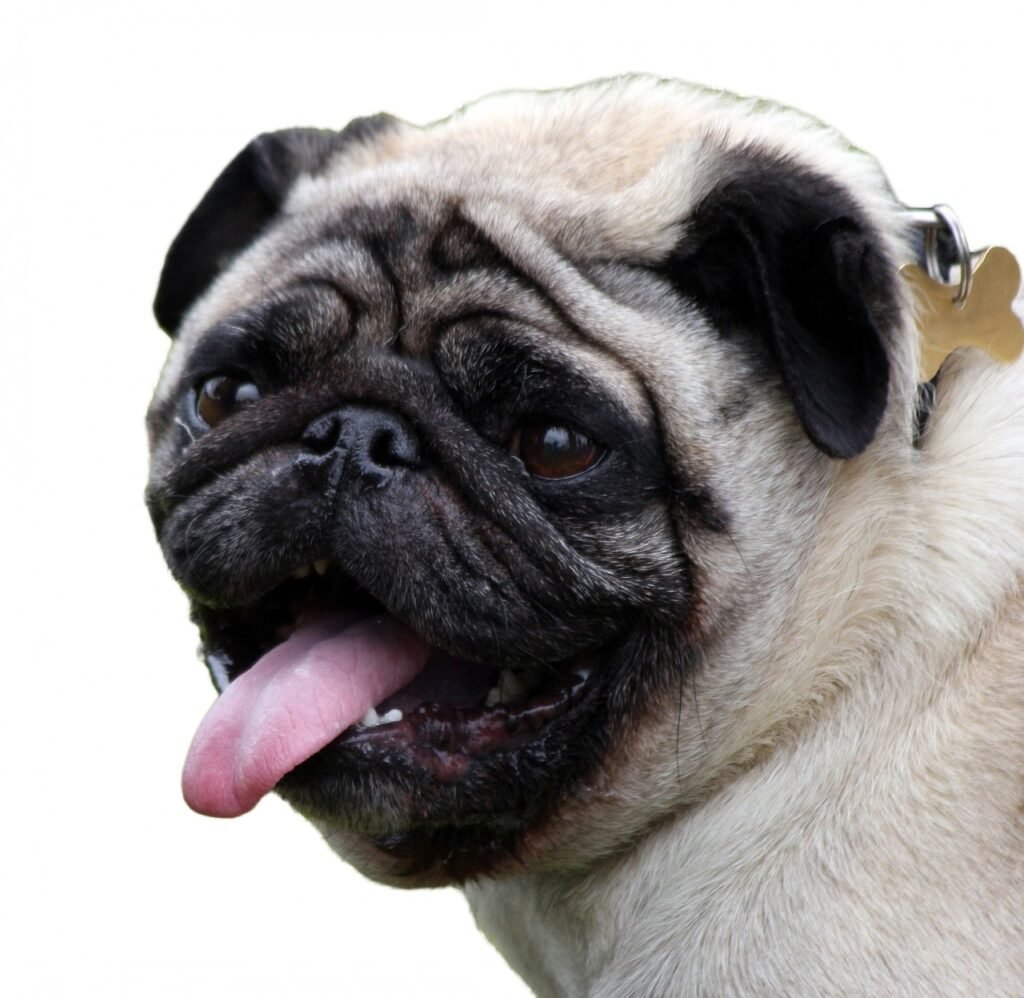
To ensure your senior dog experiences comfort during the night, establishing a serene bedtime routine is paramount. Begin by designating a peaceful area for your dog to sleep, one that is away from the hustle and bustle of household activity. This could mean providing a soft bed in a quiet corner where they can relax undisturbed. The familiarity and security of their own space can significantly reduce stress-induced panting.
Incorporating gentle, soothing activities before bed can also make a world of difference. Consider a brief, leisurely walk in the evening to help them unwind. Following this, a calm session of petting or a gentle massage can aid in further relaxing their muscles and easing any discomfort they may feel, which in turn can alleviate panting.
The ambiance of the sleeping environment plays a crucial role in your dog’s ability to rest comfortably. Ensure the room temperature is kept cool, as older dogs can overheat more easily, leading to excessive panting. Additionally, soft background noise, such as a low-volume white noise machine or calm music, can provide a sense of comfort and drown out any jarring sounds that might disturb their sleep.
Lastly, keep fresh water accessible at all times, especially if your senior dog tends to pant more due to overheating or anxiety. Hydration is key in preventing dry mouth and further discomfort, allowing for a more restful night.
By thoughtfully addressing these aspects, you can create a nurturing nighttime environment that caters to the unique needs of your senior dog, promoting tranquility and reducing unnecessary panting.
When to Seek Veterinary Care for Excessive Panting
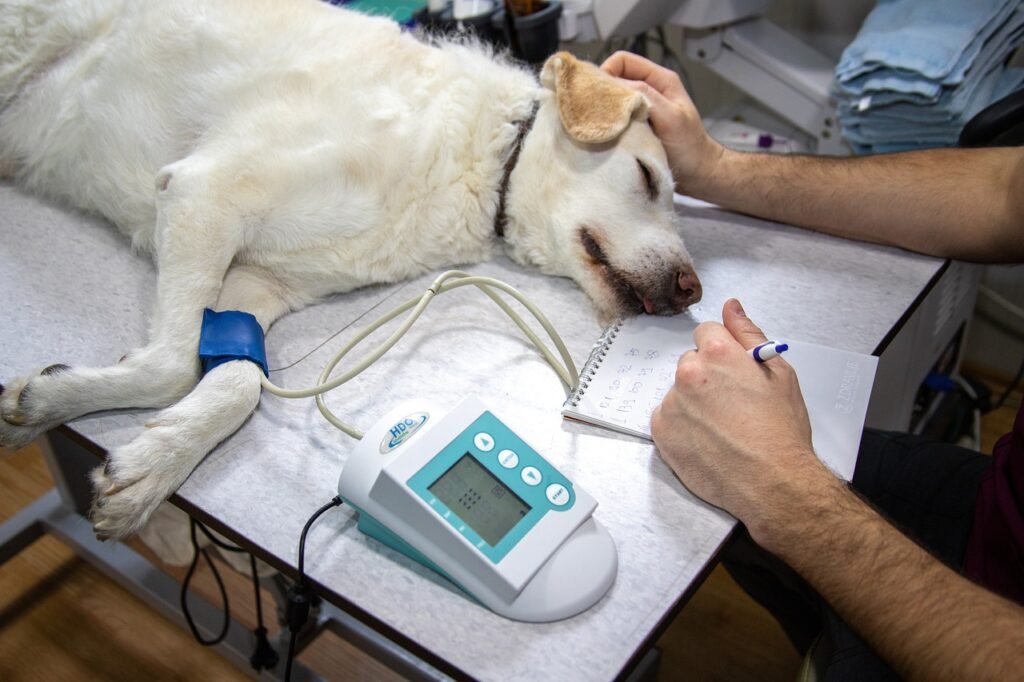
Observing your senior dog panting more than usual, especially at night, warrants a prompt veterinary consultation. This increase in respiratory effort can be indicative of underlying health issues that need immediate attention. It’s critical to differentiate between normal panting, which is a dog’s natural mechanism for cooling down, and excessive panting that could signal something more severe.
The urgency to contact your vet intensifies if the panting is accompanied by other symptoms such as lethargy, reduced appetite, or coughing. These signs could point towards heart disease, respiratory conditions, or other systemic issues that only a comprehensive medical examination can clarify.
Moreover, any sudden onset of heavy panting, or panting that disrupts your dog’s normal sleep pattern, should not be overlooked. In senior dogs, these changes can occur rapidly and may deteriorate quickly if not addressed in a timely manner.
During your visit, be prepared to provide your veterinarian with a thorough history of your dog’s panting episodes along with any other behavioral or physical changes you’ve noticed. This information is invaluable for crafting a diagnostic and treatment plan tailored to your senior dog’s specific needs.
Lastly, remember that preventive care is just as crucial for managing your dog’s health. Regular check-ups can catch potential problems before they escalate, ensuring your senior companion maintains the best quality of life possible.
Long-Term Management Strategies for Senior Dogs

Developing a comprehensive plan to manage your senior dog’s panting involves a holistic approach that extends beyond immediate remedies. It is essential to work collaboratively with your veterinarian to construct a regimen that not only addresses the symptoms but also targets the underlying causes. This plan may include adjustments in diet, exercise, and environment tailored specifically to your senior dog’s needs and capacities. By focusing on a balanced lifestyle, you can mitigate factors that exacerbate panting, such as obesity or overheating, and enhance your pet’s overall well-being.
Incorporating regular health screenings and check-ups into your senior dog’s care routine is crucial for early detection of conditions that could contribute to excessive panting. Through vigilant observation and timely medical intervention, potential health issues can be identified and addressed before they escalate. This proactive strategy is key in extending not only the lifespan but also the quality of life of your senior companion.
Modifying your home environment to better suit the aging process of your dog is another vital component of long-term management. Ensuring easy access to comfortable resting areas, maintaining a cool ambient temperature, and minimizing stress-inducing stimuli can significantly reduce the incidence of nighttime panting. Tailoring your home to meet the evolving needs of your senior dog demonstrates a commitment to their comfort and health, creating a nurturing space for them to thrive in their golden years.
The Importance of Regular Check-Ups for Aging Canines

Maintaining the health of your senior dog necessitates regular veterinary visits, a crucial aspect of proactive pet care. These check-ups allow for a thorough assessment of your pet’s current health status, providing an opportunity to catch potential issues before they become serious problems. During these visits, a veterinarian can evaluate your dog’s heart, lungs, joints, and other vital organs, ensuring they are functioning as well as possible for their age.
The significance of these examinations extends beyond mere physical health. Cognitive function, behavior changes, and the effectiveness of ongoing treatments can also be monitored, offering a comprehensive overview of your senior pet’s well-being. This holistic approach is invaluable in managing the complexities of aging, allowing for adjustments in care that can significantly improve quality of life.
Early detection of diseases common in older dogs, such as arthritis, heart disease, and diabetes, is another pivotal reason for regular veterinary visits. With early diagnosis, many conditions can be managed more effectively, minimizing discomfort for your pet and potentially extending their life. Therefore, scheduling regular check-ups is not just a task—it’s an expression of your dedication to your senior dog’s health and happiness.
Final Thoughts: Empathy and Understanding for Your Senior Companion
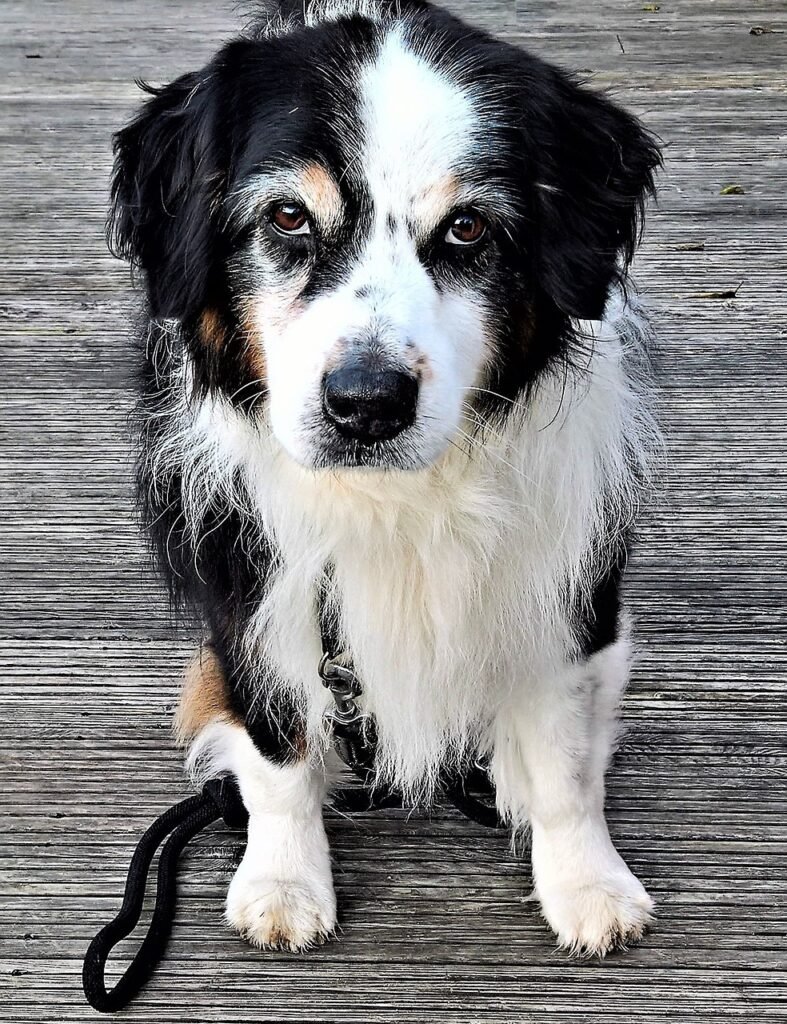
Navigating the twilight years with your senior dog requires a blend of compassion, patience, and informed care. Each pant, pace, and restless night tells a story of their needs evolving with age, underscoring the importance of tuning into these subtle cues. With a foundation built on empathy and understanding, you can transform challenges into opportunities for deepening the bond you share.
It’s through acknowledging their vulnerability and adjusting our care to meet their changing needs that we truly honor our commitment to their well-being. Partnering closely with your veterinarian enables you to tailor approaches that address the root causes of nighttime panting, ensuring your senior dog receives the highest quality of life possible. As we stand by our furry companions through every stage of their journey, our empathy and actions speak volumes, reaffirming our unwavering support for these beloved members of our families. Remember, the golden years can be filled with contentment and peace, with the right care and heartfelt understanding.

